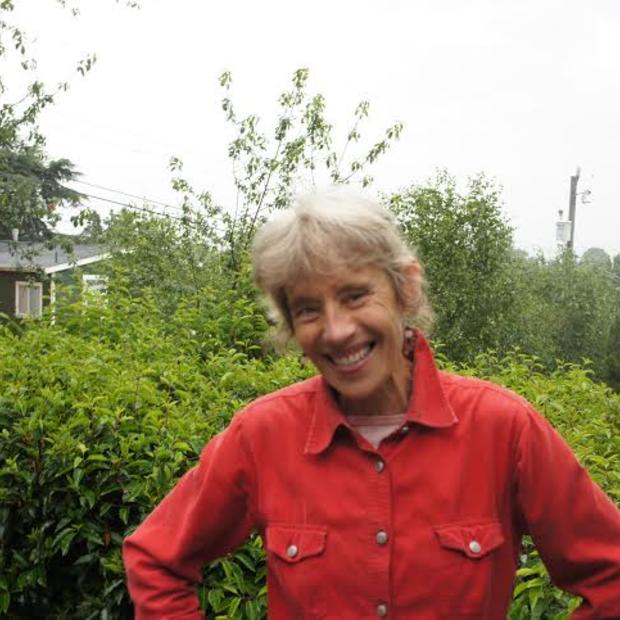The din and excitement from the kitchen will draw you in before the savory smells. Teens tease and shout as they drizzle salmon with herbs and butter, sauté greens and caramelize local fruit. This is the organized chaos of a community kitchen.
“This community happens to be Rainier Beach High School community,” explains Malaika Robinson, program coordinator and lead chef. “And this is my after-school cooking club. As you can see, everybody has decided where they want to fit in and what they want to do and they are absolutely doing the job!”
Click on the audio player above or here to listen.
Three teens seem quite happy caramelizing apples and pears with cinnamon and butter. “It’s going to be really balm and luscious.” Erica, Michaiah and Xavera should know. “Like, right now we’re just tasting the pears and they’re so rich you know.”
Tasting, cooking and eating healthy food, often from scratch, is what Community Kitchens Northwest is about. Food traditions once handed down for generations are being reclaimed by young people, brought together to cook in community.
“We don’t use a lot of recipes. We really advocate what we call freestyle or intuitive cooking,” says Seattle Tilth's Leika Suzumura. Seattle Tilth administers the program with partnership support from Seattle Parks and Recreation. “That’s ultimately what’s going to give these students the skills to go home and open up their cupboards and feel confident to make a meal with whatever they have on hand.”
It may not always be locally caught salmon, donated in this case by Loki Fish., but as Suzumura puts it, even top ramen gets a nutritional boost with kale and collard greens.
The greens and herbs for today's meal were harvested at the Rainier Beach Urban Farm and Wetland. More edibles are growing in a garden in the courtyard of Rainier Beach High School, which art teacher Aaron Jefferson, who long had a vision for the garden, worked with students to design. “It’s been really exciting for us to have this happen so quickly; to have a beautiful space set up where kids are now seeing things that they’ve planted growing and they’re eating,” he says.
A new mound of earth has just been readied to plant garlic. A gardener with Seattle Youth Garden Works, a Seattle Tilth project, instructs newbies. “The flat part goes down where the root is and the pointy part goes up facing the sun.”
Growing, cooking and eating nutritious food are part of what Will Allen, CEO of Growing Power, the country’s leading urban farm training center, calls the "good food revolution." In town to promote the paperback edition of his book, Allen is paying tribute to regional urban food hot spots like the Rainier Beach Community Kitchen. He's stopped by the kitchen today for a visit. “I think everybody knows good food is our medicine,” he says.
In African American communities, Allen explains, growing and cooking healthy food is about dismantling racism and a food system responsible for the obesity epidemic and diet-related illnesses most often harming blacks.
“To teach these young people about where their food comes from, you have to start at this level," he explains. "They have to see the whole piece. You can’t just bring the food to ‘em and say, 'Now, go cook it.'”
Back in the community kitchen, a teen wearing a hijab and another in jeans slice carrots for the meal celebrating Allen's arrival. Alyssa and Ifrah come every week to the class ready to learn something new. “It strengthens relationships between students, like people you wouldn’t normally talk to,” says Alyssa.
Adds Ifrah, “It helps you become self-sufficient knowing where the farm is and knowing that the food coming from the farm is actually tastier and more healthy for you than any of the food you can buy off of aisles at Safeway and stores like that.”
The time to serve the community meal has arrived. “This is when the craziness starts. We’re like chilling ‘cause everything is ready,” Suzumura says, “but now everybody is showing up and everybody is hungry and the food has got to get ready.” She instructs the students. “We’ll put the rice first and then the salad.”
The community is ready. The feast is about to begin.
Support for this story comes from the Human Links Foundation. Engineering by Moe Provenchar. From the studios of Jack Straw Productions.



